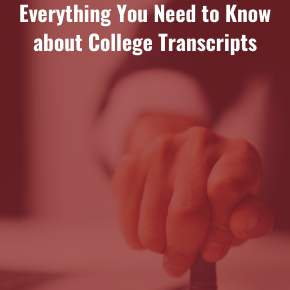Whether you are a battle-tested educator hoping to advance your career or skilled professional planning to expand your repertoire by teaching the next generation, a Master of Arts in Teaching (MAT) could help you reach the next rung on the career ladder.
Designed by educators for educators, this program equips you for a rewarding career at all levels of education. Getting an additional degree can boost your earning power, help you get a new job and make you more effective in the classroom.
However, traditional degree routes can be challenging for working educators with long days and many obligations. SNU’s program for adult learners allows you to integrate your graduate training into your schedule rather than adapting your entire life to your degree program.
Reasons to Consider a Master of Arts in Teaching
A Master of Arts in Teaching is a non-certification program, meaning that it caters to people who are already teachers. If you lack a teaching certificate, you may need to complete an alternative certification plan before or after getting your degree.
So what are the benefits of a Master of Arts in Teaching? They include:
- Increased career training: Education is challenging, requiring you to work with students with different needs, abilities and backgrounds. A master’s degree equips you with more skills, more classroom management techniques and a thoughtful approach to educational philosophy that can help you devise your unique style.
- A chance to break career ceilings: In some school systems, a master’s degree is a prerequisite for certain pay levels or roles in administration.
- The opportunity to transition careers: If you’re working outside of education, the MAT program provides the perfect opportunity to transition to a role in education. Educators may also find that this degree helps them pivot to another role within education.
- More expertise in your field: The right education equips you to manage challenging workplaces and classrooms. It can also help you become a respected expert at your school.
The Economic Benefits of a MAT: A Look at the Numbers
Research consistently finds that more education increases earnings. For example, 2020 data from the Bureau of Labor Statistics shows that the average master’s degree holder earns $1,545 per week, compared to $1,305 with a bachelor’s degree. Unemployment rates are significantly lower, too. With a master’s, the rate is only 4.1%, compared to 5.5% with a bachelor's degree.
So what do the numbers say for teachers pursuing a master’s degree?
The National Council on Teacher Quality conducted research on education and salaries and found that most school districts factor in a teacher’s education when developing compensation structures. Although the average teacher with a master’s degree only earns about $5,000 more per year than one without, these differences accumulate over time and with more experience. By the end of a teacher’s career, a master’s degree may equate to as much as $48,000 more per year. Over the course of a career, a master’s degree easily equates to a six-figure difference in total earnings.
Of course, earnings and earning power are not the only financial considerations. Earning more money each year and in a lifetime also means more money to invest and save for the future. That can mean a more comfortable retirement, greater Social Security payments, the chance to invest in real estate and other opportunities to create more wealth for yourself and your family.
SNU’s MAT: Program Spotlight
SNU’s MAT program is designed with busy educators in mind. Our classes are dense with useful material and draw upon the expertise of recognized leaders in the field.
In as little as 18 months, you can graduate with your Master of Arts in Teaching from SNU. Each course lasts six weeks, and you’ll take a single course at a time, allowing you to turn your full attention to a single subject. With multiple start dates, you don’t have to wait once you’re ready to begin. You will complete 30 credit hours at $490 per hour.
Some of the MAT courses you will take include:
- Educational Technology
- The Art of Teaching
- Reading Assessment and Instruction
- Educational Psychology
- Legal Implications for Teaching
- Secondary Teaching Methods
- Classroom Leadership
Tips for Choosing the Right Master of Arts in Teaching Program
Before considering an MAT program, a few questions can help you assess whether it’s the right program for you:
- How long will this program take?
- What is the cost of the program?
- Are there flexible course options, such as online and evening classes?
- What prerequisites must I meet before completing the program?
- Does this program support adult and mid-career learners?
- What are my financial aid options?
- Will this program help me meet my career goals?
- How much more money could I earn in my current role with a master’s degree?
Returning and mid-career adult learners are increasingly choosing Master of Arts in Teaching online programs. SNU is no stranger to distance learning. As an early adopter, we know how to build exceptional online degree programs that both challenge learners and empower them to graduate on time, despite a busy schedule.
An Exceptional Teaching Career Begins With SNU
Teachers change lives, whether they are helping first graders read their first book or preparing master’s degree candidates to enter the workforce. At SNU, we believe in the power of educators to build a kinder and more just world. We know that busy adults often struggle to fit education into their lives, especially if they have rewarding careers or young families. That’s why we offer flexible options that include night classes, online learning, multiple start dates, accelerated graduation timelines and plenty of financial aid support.
We help students begin building their careers well before they graduate, and we endeavor to ensure that every graduate leaves our campus with the skills they need to thrive at work and in life, whether they are asking for a raise or writing a cover letter.
A Master of Arts in Teaching is a non-certification program, and is just one of many education plans we offer. You might also consider our alternative certification plan — which helps you meet Oklahoma’s teacher certification requirements — our Special Education Boot Camp or our Troops to Teachers course.
If you’re ready to turn the page to the next chapter of your teaching career, we’re here to help. Begin your degree by contacting us today.












